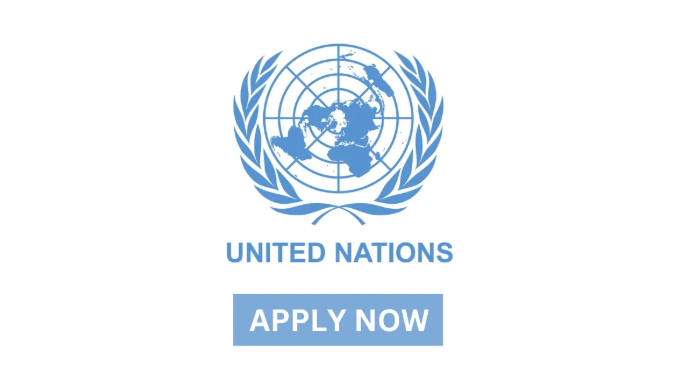EU Remote Jobs | Application Guide
The world of work has changed drastically in recent years, with remote work now a permanent feature across multiple industries. In the European Union (EU), remote jobs are increasingly popular due to flexible working policies, cross-border opportunities, and technological advancements. Companies across Europe now hire remote professionals in IT, finance, marketing, healthcare, education, customer support, and more.
If you are looking for EU remote jobs, this article provides you with a detailed application guide. We will cover eligibility, top sectors, platforms to find remote jobs, tips for creating a strong application, and the step-by-step process to secure your dream role.
Why Choose EU Remote Jobs?
Remote jobs in the EU come with several advantages:
- Flexibility: Work from anywhere while maintaining work-life balance.
- Cross-border opportunities: Apply for positions across all EU member states without relocation.
- Diverse industries: From IT to healthcare, remote work options are vast.
- Higher earning potential: Many companies offer competitive salaries that align with EU labor standards.
- Cultural exposure: Work with international teams and broaden your global career experience.
Top Industries Hiring for EU Remote Jobs
Remote work is not limited to tech roles alone. Here are the major industries that actively recruit for EU remote positions:
Information Technology (IT) and Software Development
- Web developers, data analysts, software engineers, and cybersecurity experts.
- Demand is high due to digital transformation across EU businesses.
Finance and Accounting
- Remote accountants, auditors, and financial analysts.
- Many EU companies outsource bookkeeping and tax-related services to remote professionals.
Marketing and Digital Media
- Content creators, SEO specialists, social media managers, and digital marketers.
- With online businesses booming, digital roles are highly sought after.
Healthcare and Medical Support
- Telemedicine, medical transcription, and online health consultations.
- Remote healthcare services are expanding post-pandemic.
Education and E-learning
- Online tutors, language instructors, and curriculum developers.
- Demand for e-learning platforms has made teaching a leading remote sector.
Customer Support and Administration
- Virtual assistants, chat support agents, and HR specialists.
- Many companies outsource customer care functions to reduce costs.
Eligibility and Requirements for EU Remote Jobs
Before applying, it’s essential to know the eligibility criteria. Requirements vary by employer, but typically include:
- Educational Qualifications: A relevant degree or certification depending on the role.
- Experience: Prior work experience in similar roles may be required.
- Language Proficiency: English is widely accepted, but knowledge of other EU languages (German, French, Spanish, Dutch) is an added advantage.
- Technical Skills: Depending on the industry (e.g., programming, digital marketing, finance tools).
- Legal Work Authorization: EU citizens generally face fewer restrictions. Non-EU citizens may require work permits or freelance visas, depending on the employer’s policies.
- Stable Internet Connection: A strong and reliable internet setup is essential for remote roles.
Platforms to Find EU Remote Jobs
If you are looking for EU remote jobs, these platforms are a great place to start:
- EU Remote Work Portals: Websites like EU Remote Jobs specialize in European opportunities.
- LinkedIn: Use filters to search for “remote jobs” across EU companies.
- Glassdoor & Indeed: Popular global job boards with remote work listings in Europe.
- We Work Remotely: A trusted platform with international remote job opportunities.
- Remote OK & FlexJobs: Ideal for tech and creative professionals.
- Company Career Pages: Many EU organizations advertise remote positions directly on their official websites.
Step-by-Step Guide to Applying for EU Remote Jobs
Here’s a step-by-step application guide to help you secure your dream remote role in the EU:
Identify Your Career Goals
- Decide on the industry and role you want.
- Assess your skills, experience, and what type of company suits you.
Prepare Your Resume and Cover Letter
- Highlight remote work experience (if any).
- Emphasize soft skills such as communication, adaptability, and time management.
- Customize your resume for each application.
Build a Strong Online Presence
- Update your LinkedIn profile.
- Create a portfolio website if you’re in design, writing, or development.
- Showcase achievements and testimonials.
Search for Opportunities
- Use job platforms, networking, and referrals.
- Set job alerts on LinkedIn and other boards.
Apply Strategically
- Tailor each application to the company’s requirements.
- Include a personalized cover letter.
Prepare for Online Interviews
- Employers often conduct video interviews.
- Test your camera, microphone, and internet connection.
- Be ready for skill-based tests (coding challenges, case studies, etc.).
Understand Work Policies
- Clarify working hours, salary, and taxation policies.
- Ensure compliance with EU labor laws and remote work agreements.
Secure the Job Offer
- Negotiate salary and benefits.
- Confirm contract details before signing.
Also Read:
Tips for a Successful Application
- Research the Company: Know the company’s values and goals.
- Be Professional in Communication: Respond promptly to recruiters.
- Highlight Remote Skills; Time management, self-discipline, and adaptability.
- Showcase Tech Readiness: Familiarity with Zoom, Slack, Trello, and other remote tools is a plus.
- Stay Consistent: Persistence is key; keep applying until you find the right fit.
Challenges of EU Remote Jobs
While EU remote jobs are attractive, applicants should be aware of challenges:
- Time Zone Differences: Some roles may require alignment with CET (Central European Time).
- Legal Restrictions: Non-EU residents may need work permits.
- Isolation: Working remotely can reduce social interactions.
- High Competition: Remote positions attract global talent, making them competitive.
Future of Remote Jobs in the EU
The demand for remote work in the EU is expected to keep growing. According to reports, nearly 30% of EU professionals already engage in remote or hybrid work, and the percentage is rising. Companies are shifting toward flexible work models to attract global talent.
With digital transformation, AI adoption, and cross-border collaborations, EU remote jobs will remain one of the most attractive career options in 2025 and beyond.
Conclusion
Finding and applying for EU remote jobs requires preparation, strategy, and persistence. By identifying your career goals, tailoring your applications, and leveraging the right job platforms, you can increase your chances of landing a high-paying remote role in Europe.
Remote work in the EU is not just a trend—it’s the future of work. Whether you’re an EU resident or an international applicant, this guide provides the roadmap to help you successfully navigate the application process






